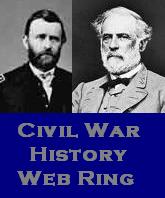Ira Wallace Claflin was born in Vermont in 1834. He was appointed to West Point from Iowa in 1853. He graduated 27th in his class on July 1, 1857, when he was promoted to second lieutenant in the Regiment of Mounted Riflemen. He continued to serve at West Point as an Assistant Instructor of Cavalry from October 3, 1857 to May 13, 1858. He was ordered to join his regiment on the frontier, and was promoted to second lieutenant when he arrived at Albuquerque, New Mexico on June 14, 1858. Claflin accompanied his unit on several scouting expeditions over the next three years, serving the majority of his time at Fort Union, New Mexico. In 1859, he participated in an expedition against the Tuni-cha Navajos.
Lieutenant Claflin was still serving at Fort Union at the outbreak of the Civil War. He received a promotion to first lieutenant in the newly-created 3rd U.S. Cavalry on May 14, 1861 (re-designated 6th US Cavalry on August 3rd), but was unable to join his regiment due to ongoing operations in New Mexico. As one of the few professional soldiers in the region, he was directed by his old regimental commander to lead an artillery battery of four 12 pound mountain howitzers. He did so with distinction, earning a brevet to captain for gallant and meritorious services at the battle of Val Verde on February 21, 1862. He also fought in the action at Peralta, New Mexico on April 15, 1862 before heading east to join his new regiment on the Peninsula.
He served on the Peninsula at Yorktown from June to August 1862, then as the regimental commissary officer from August 27th to September 5th. Claflin was temporarily assigned to Company A in September, then assumed command of the dismounted Company C and spent the next two months manning and equipping the company. In December he rejoined the regiment in camp at Falmouth, fully manned and mounted. He was promoted to captain on December 23, 1862.
Claflin continued to command Company C until April 1863, when he was assigned command of Company H upon the resignation of Captain John Savage. He remained with this company of and on for the rest of his career.
During the Gettysburg campaign, he once again served as the regimental commissary until the disaster suffered by the regiment at the battle of Fairfield. He assumed command of the remaining 200-odd troopers of the regiment, and led it into battle four days later at Funkstown, Maryland, where he was severely wounded in the shoulder on July 7, 1863. He was later brevetted major effective that date for gallant and meritorious services during the Gettysburg campaign. Claflin was absent on sick leave recovering from his wound until September. He resumed command of the regiment upon his return, which he held until May 1864. He commanded Major General Sheridan’s escort during the Shenandoah and Richmond campaigns from May 4, to November 11, 1864. He was then appointed a Special Instructor of Cavalry in the Department of West Virginia until July 21, 1865.
After the war, Claflin had a brief stint at West Point as an Assistant Professor of Geography, History and Ethics. He served in that position from August 31, to October 6, 1865, when he rejoined his regiment in Austin, Texas and took command of Troop H. He remained there until June 1866, when he took his troop on an inspection of frontier posts that lasted three months and stretched nearly 1,400 miles. He continued to serve in Austin with the regiment upon his return until January 20, 1867, when his troop moved to Mount Pleasant, Texas.
Ira Claflin died of yellow fever at Mount Pleasant, Texas on November 18, 1867 at the age of 33.
Wednesday, November 14, 2007
Subscribe to:
Post Comments (Atom)


3 comments:
Don: Thanks so much for the company designations. All too often officer bios omit which company an officer is attached to.
RE: Captain Claflin's death. He left a wife and two children, his daughter aged 3 1/2, and a son, Morris Fairfax Claflin, less than 6 mos. old at the time of his death. His wife had accompanied him to Texas, and was with him in Mt. Pleasant when he died.
Given the ghastly nature of death by yellow fever, and the grief she must have felt at his passing, one can only imagine the additional hardship of traveling with two young children, and how she must have felt. She departed Texas by stage and steamer the first week of December, 1867, her passage paid for by the US Army. Her daughter and son were raised by Capt. Claflin's father, Ira, appearing on the 1870 census for Iowa. Mrs. Claflin eventually remarried and lived in eastern Maryland. Her daughter married a preacher in Kansas, and her son moved to San Francisco, where as a young man he married, and, I believe, was residing at the time of the 1906 earthquake.
If anyone reading this knows further information regarding Capt. Claflin's children, grandchildren, etc., please post it on this string, and I will gladly keep in touch. Jim
Jim,
Glad you found the entry helpful. What were his children's names? I didn't find a mention of them anywhere, but didn't check census records.
Claflin was also in charge of the Union artillery at the decisive Battle of Glorieta Pass, March 28 1862. The Confederate supply train was destroyed in this engagement, which ultimately forced the Confederates to permanently abandon New Mexico.
Post a Comment